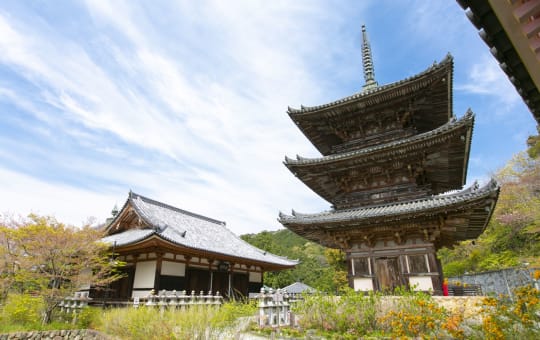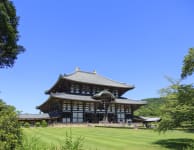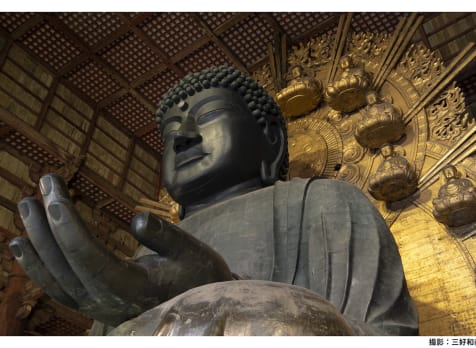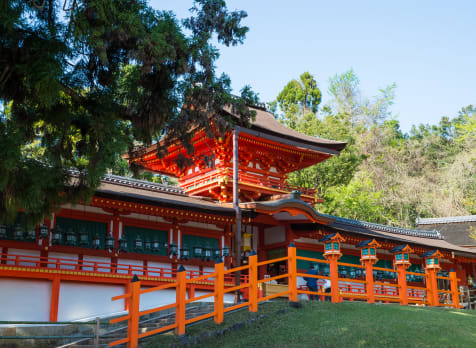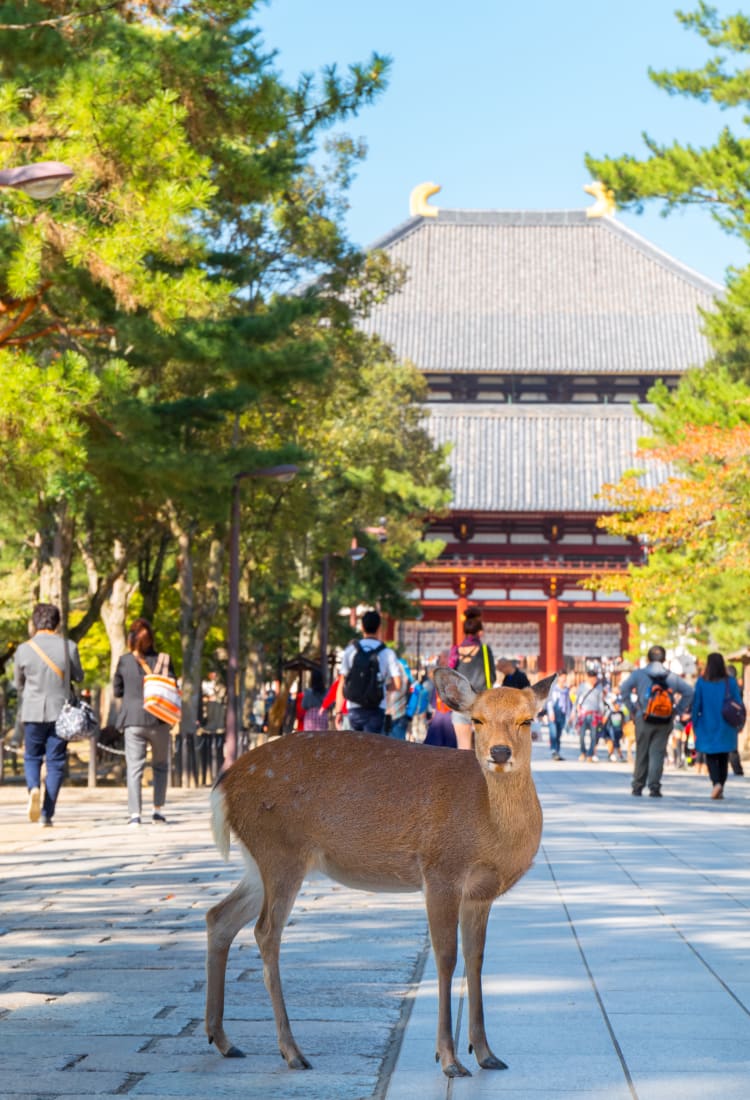

NARA Nara Park Magnificent temples and shrines and wild-roaming deer in a huge park
Magnificent temples and shrines and wild-roaming deer in a huge park
Nara Park is a massive park at the foot of Mt. Wakakusa full of very playful and friendly deer. The natural setting includes temples set in unspoiled woods and a lake full of turtles and carp. The temples and shrines of Nara are much older than the oft-rebuilt buildings in Kyoto, and much more unique.
Don't Miss
- Interacting with the tame deer
- The Great Buddha
- Exploring Japan's Buddhist history through art and monuments
How to Get There
Access to central Nara is easiest from Osaka. Nara Station on JR lines is further away from the city center than Kintetsu Station.
The fastest way to get to Nara is the 35-minute limited rapid express from Osaka-Namba to Kintetsu Nara Station. This will cost 520 yen more than the regular express trains that take 5 minutes longer.
Kintetsu Nara can also be reached from Kyoto Station in just over 30 minutes.
From Kintetsu Nara, the park is a 5-minute walk. The park can also be accessed from JR Nara Station with a 20-minute walk.
Great size and scale
The area around Nara Park is known for its incredible cultural heritage. The most famous and the first place most visitors go is the Great Buddha Hall at Todaiji .
This is the largest bronze statue of Buddha in the world, and weighs an estimated 300 tons. Inside what was once the largest wooden building in the world, the scale of this statue is awe-inspiring. Do not miss the less-visited temple buildings up the hill to the left of the Great Buddha.
Similarly impressive is the 50-meter tall pagoda at the neighboring Kofukuji . This magnificent construction makes it the second tallest five-story pagoda in Japan. The museum here is a must for lovers of Buddha statues.
A quick walk away from the Great Buddha is Shinyakushiji , which is known for its statue of the Medicine Buddha. While a lot smaller in size than the Great Buddha, this Buddha is still very impressive, as it was laboriously carved from a single piece of wood, and the many statues that surround it are a very impressive and original sight.
A perfect balance
Nearby Kasuga Taisha balances perfectly the natural and cultural elements of the area. Walk to the shrine along a path through the woods, illuminated with innumerable stone lanterns during Setsubun Mantoro . At the shrine itself, the deep vermillion colored paint of the buildings perfectly complements the surrounding trees.
Do not miss the Nara National Museum , with its unrivaled collection of Nara Period art.

Nara Park is known for its tame deer. While some caution is advised, it is possible to walk up to the deer and take a photograph with them or feed them with deer crackers on sale along the side of the road.

Fans of animals will also love Sarusawa pond. This is a great place to relax on the benches and watch turtles and carp swimming around.
Many people take a classic photograph of Nara here, using the pond as a mirror to reflect the pagoda of Kofukuji and the beautiful trees.
A playground for avid photographers
The great park and the photogenic structures make central Nara a popular location for photographers.
Another popular photograph is a shot of the park from the Wakakusa mountain itself. The climb up the mountain offers a unique view of some of Nara's most famous sights. In the evening, in addition to being full of deer and birds, the mountain offers visitors a magnificent panoramic perspective of the Nara area.
Set aside a few hours to view the park, feed the deer, and observe its cultural highlights at leisure.




















































